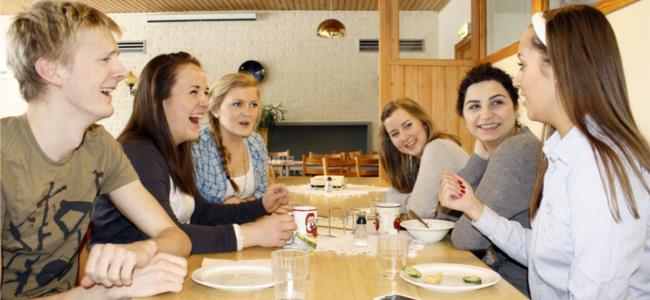Andjela (22) and Milica (21), Norwegian language students of the Belgrade University’s Faculty of Philology, were the only two brave ones to move to the small Norwegian town of Moelv for a year this past September. The exchange programme includes full scholarship, but also a lot of obligations, given that the students are supposed to study in Norway and at the same time do all the regular assignments in Belgrade.
They say they learned a lot of theory about Norway and its people, but it did not prevent them experience a cultural shock in the beginning. “It was a huge change. Living with Norwegian people who are my age is something completely different from what I have experienced before,” says Andjela.
The adjusting period lasted for a month. “It had also a lot to do with language and all the different dialects, adapting to the new environment, weather, but also a new way of teaching,” she added. The teaching model differs a lot from Serbian as it comprises practical assignments, guest lectures and open discussion. “In Norway, we have a relaxed relationship with professors and everything is about good communication,” says Milica.
They study at “Folkehøgskole”, or, as it translates to, folk high school. The idea and philosophy of these kind of schools, which spread from Denmark in mid 19th century, is that students focus on subjects that interests them and grow in an environment without exams and grades.
Milica and Andjela got used to the new school model so much that now when they went to the Belgrade’s Faculty to pass some exams, they encountered different problems including limited access to information of all kind.
As the only two foreigners in the school of 77, they got an insight into the Norwegian lifestyle and mentality, but also made good friends there. “We were told that Norwegian people are distant and cold which is not really like the case. The way they react with other people is somewhat healthier than in Serbia. We in Serbia do not know how to appreciate hugs and big words and in Norway they do not do that so often so it has a whole new meaning,” Milica explains.
To them, their Norwegian colleagues seem to have different values. “In Serbia, it is important to have expensive clothes and phones, but there are other things that Norwegian people appreciate,” says Andjela. The Norwegians work after school, wake up early in the morning, they also travel a lot and show that they are open for new cultures.
In addition to learning new things every day, Andjela and Milica are happy that their language skills are improving on a daily basis, as well. “The comprehension is much better than in the beginning and vocabulary skills are going strong,” says Andjela.
As the second semester kicks off, they are looking forward to learning and exploring more of Norway, but also enjoying the adorable Norwegian nature, as they say.





